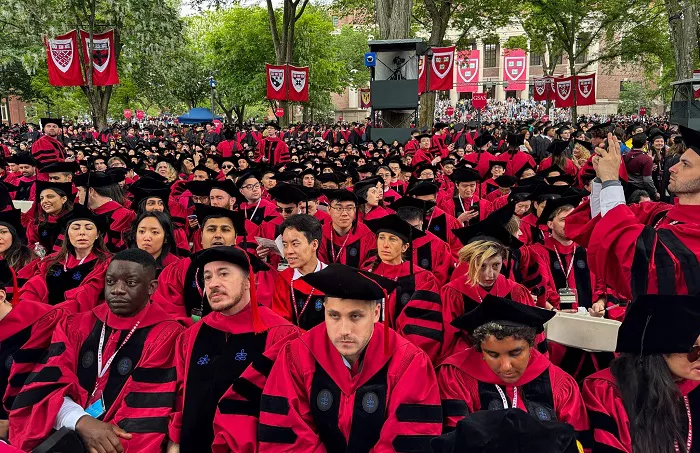At Yonsei University in Seoul, I teach some of the world’s most talented students, and this spring they shared a growing concern: due to escalating political tensions and policies under the Trump administration targeting U.S. universities and international students, many are reconsidering their plans to study abroad in the United States.
During a recent dinner with political science majors, held just a day after President Trump imposed a ban on enrolling international students at Harvard, numerous students expressed hesitation about pursuing education in the U.S. Their fears go beyond Harvard or political announcements like those from Secretary of State Marco Rubio, who declared suspensions on new student visa applications and aggressive visa revocations, particularly targeting Chinese students.
Many students worry about their safety, their ability to complete their degrees, and the potential for legal troubles, including arrest or deportation. These concerns are shaping a shift in aspirations for graduate studies and study abroad programs.
For years, U.S. universities represented the dream destination. One student, sporting a Yale sweatshirt, confessed she is now exploring alternatives for law school. The perception of risk associated with studying in the United States has changed dramatically, and students fear the campus environment will worsen.
Instead of asking which U.S. university suits their academic interests, students increasingly inquire about options in other countries and continents, often unsure where to begin. Where once conversations centered on the Ivy League, Big Ten, and University of California campuses, discussions now revolve around institutions like the University of British Columbia, the London School of Economics, the University of Edinburgh, the University of Melbourne, and Maastricht University.
This shift confirms concerns raised by U.S. educators that attracting top global talent is becoming more difficult. From my vantage point in Seoul, the soft power and competitive edge of American universities are visibly diminishing.
As a U.S. faculty member in Korea for 17 years, I recognize that while Trump’s policies may benefit universities like Yonsei by attracting higher caliber international students who might have otherwise studied in the U.S., this disruption is not a net positive. Yonsei University’s legacy, founded 140 years ago by U.S. missionaries, is deeply connected to global academic networks, including U.S. institutions.
Each year, Yonsei sends dozens of graduates to U.S. graduate schools, and many alumni hold academic positions in the United States and Europe. At the recent dinner, one professor—a Yonsei alumnus who completed his doctorate in the U.S.—joined the faculty, symbolizing the deep ties still present.
Yet, as students face uncertainty about their futures, the question remains: will they have the same opportunities to pursue education in the United States down the road? I hope the answer is yes, but the current landscape signals profound change for study abroad programs and international student mobility.
This evolving trend highlights the shifting dynamics in global higher education, emphasizing the importance of diverse study abroad guides and alternative destinations for ambitious students worldwide.


